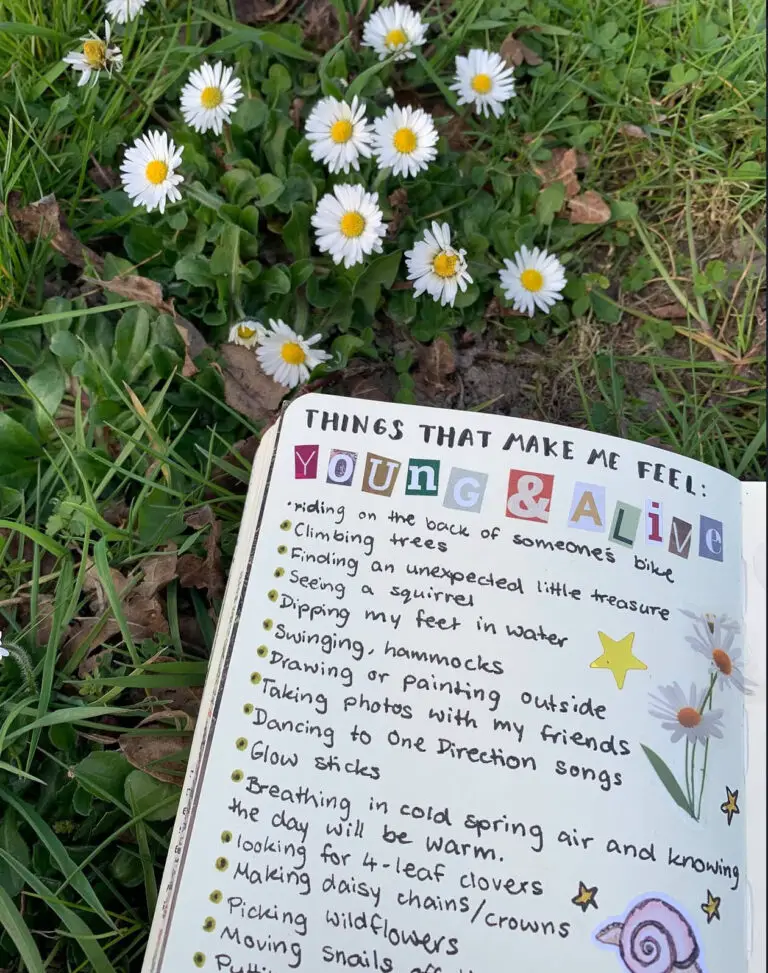Qualities of A Good Writer for Success: 15 Keys

As an aspiring writer, I’ve found that entering the world of storytelling or content creation can feel overwhelming. With endless content online and so many opinions on what qualities of a good writer are, self-doubt in the writing world was something that I struggled with for a long time.
But loving the craft and hoping to find success has kept me motivated over the years to keep trying, and I found that while basic skills matter, what’s most important are the qualities that keep you motivated and focused on your goals.
Whether you dream of publishing a book, growing a blog, or simply expressing yourself more clearly, strong communication is something anyone can learn. To help you get started, here are 15 key traits that set great writers apart—and can help you build lasting confidence to help on your journey.
Creative Qualities of a Good Writer
One of the most important qualities that good writers share is a strong sense of individuality and creativity.
In a world full of opinions on how writing should be, it’s easy to fall into the trap of trying to fit someone else’s mold. However, the truth is that the most impactful writing often comes from those who think differently and bring fresh perspectives to their work.
I know that is easier said than done; inspiration doesn’t always come easily. Writer’s block is something that everyone experiences at some point.
But when I am struggling and feel uninspired with my writing, I find that the best way through it is to start writing anyway. Even if it’s messy or doesn’t make sense at first, putting words on the page gets the creativity flowing. Trust that inspiration will catch up with you.

Qualities of a Good Writer: Clarity
Once at a point where you feel that you have strong ideas flowing and developing, it’s important to focus on a couple of good ideas and connect them in a way that is clear and concise.
When I am writing, I try and focus on a couple of strong concepts and start connecting them with intention. Clear, focused writing makes a much bigger impact than something scattered or overly complicated.
Something that has been drilled into my brain throughout all my writing classes is that good writers show rather than tell. Instead of stating your point outright, paint a picture for your reader. Use vivid descriptions, specific details, and strong imagery to bring your ideas to life.
Qualities of a Good Writer: Adaptability
One of the most important qualities that a good writer has is their ability to adapt their writing to different genres and audiences.
I enjoy creative writing, but I also understand that there is a time and a place for different styles based on who my audience is. In a way, adaptability and clarity go hand in hand because a writer’s ability to navigate different media and audiences directly impacts how effectively their message is received and understood.
Different audiences have different expectations and needs. Whether I am writing for a blog, a news article, or a research paper, I use shifts in tone, style, and structure depending on the genre or audience.
Versatility
In my time writing, I have found that the ability to shift between styles—whether it’s storytelling, blogging, copywriting, or academic writing—opens up a world of opportunities. It not only allows you to take on a wider range of projects but also helps you connect with different audiences more effectively.
A good writer isn’t just good at writing one thing. It is important to be able to expand your ability to write in different styles and genres, which will allow you to reach a broader audience.
Empathetic Qualities of A Good Writer
One of the most powerful tools in writing is the ability to relate to an audience, understand their experiences, and speak to their emotions.
Good writers can shape their tone, word choice, and the framing of ideas in a way that resonates with readers. Whether I am writing an informative article, a personal narrative, or a professional report, I use empathy as a guide when writing to make my work respectful and impactful.
Curiosity
When I was in high school, my writing teacher always said that good writers write, but they also read. Learning different stories and keeping myself curious is what has kept me drawn to writing.
Curiosity is one of the most important qualities of a good writer. They immerse themselves in literature that comes from diverse sources and opposing viewpoints to not just gather facts but also refine their way of thinking–and in turn, their writing.
Instead of settling on a surface-level understanding of a topic, it is more important to go deeper and gain a deeper understanding of whatever it is you are writing.

Research Skills
Curiosity and good research skills go hand in hand. Any professional writer will tell you that thorough research is the basis of well-informed, credible content. Accurate facts and verified data from reliable sources add depth and authenticity to writing.
Readers are more likely to engage with content that is backed by solid research. I have found that building credibility is a great way to show an audience that you respect them enough to do the necessary groundwork.
Grammar and Language Proficiency
I’ve learned that being thoughtful with language can add depth and clarity to writing. Having a solid grasp on grammar, syntax, and vocabulary is key if you want to communicate clearly—and honestly, that’s pretty important if you want to be taken seriously as a writer.
It might seem obvious, but mastering those basic skills has a big impact. When I make grammar mistakes, misspell words, or write awkward sentences, it can throw readers off and make me seem less credible.
I’ve found that clean, well-written work goes a long way in showing professionalism, no matter what kind of writing I’m doing.

Qualities of a Good Writer: Attention to Detail
Details matter more than you think when it comes to communication. Paying close attention to details elevates your work, showing care and professionalism that readers immediately notice.
I try to choose precise words, check facts, and polish grammar when revising my work. Every detail adds up to create a polished, trustworthy piece. This commitment to excellence not only improves quality but also builds your credibility and shows respect for your audience.
Time Management
I have always struggled a little with procrastination, especially when I feel stressed or uninspired. But good time management is something that I have tried to get better at as time goes on.
Whether it’s for academic, professional, or creative projects, meeting deadlines consistently and managing your time well reflect discipline and dedication to your writing.
Quality work doesn’t happen overnight; it takes time to develop ideas fully and produce something clear and well-organized. When content feels rushed or last-minute, it’s noticeable, and it often lacks the polish that comes with thoughtful effort.
Qualities of a Good Writer: Adherence to Guidelines
When I entered the world of writing, especially writing professionally, following guidelines and specifications was something that I focused on.
Guidelines often include specific formatting, tone, or content requirements that should be followed regardless of what setting you’re writing in.
Following guidelines set by clients, publishers, or academic institutions shows that you can be reliable and professional, which are qualities that are important for building trust with clients and supervisors.

Editing and Revision
Once I am at a point when I have created something well-researched and well thought out, revision and editing are the next steps I implement in the writing process that make my writing more polished and final.
Try to look at the bigger picture and ensure that your message is coherent and compelling. Correcting finer details like grammar, punctuation, and spelling are qualities that a good writer must have to be successful.
Qualities of a Good Writer: Open-Mindedness
Going over and editing your work is important, but allowing others to read and give feedback is vital for your personal growth and success. Writing is inherently a process of communication and feedback from others, and how you can receive and deal with criticism.
Not everything you write is going to be perfect, but openness to new ideas from others is how to gain depth and complexity in your writing. Engaging with feedback shows a dedication to continuously improving and respecting the opinions of readers.
Resilience
Facing rejection, criticism, and challenges is a natural part of any creative journey. This is something that I struggled with for a long time because it’s easy to feel discouraged when your efforts aren’t immediately recognized or when feedback feels harsh.
This is something that all writers have to come to terms with at one point or another, but look at each setback as an opportunity to learn and grow. The ability to recover, learn, and keep moving forward is what makes for a good writer.

Networking Skills
Once at a point where you have used skills to create something you are proud of, getting your work out there to be recognized and received is the next step to becoming successful.
Trying to build connections with fellow creators, editors, and industry professionals. Networking opens doors to new opportunities, from collaborations and mentorships to job leads and publishing chances. These relationships provide valuable support, feedback, and insights that can help you grow your skills and expand your reach.
Final Thoughts
Success in writing and content creation isn’t just about talent; it’s about cultivating a set of essential qualities that keep you growing and motivated.
Curiosity and research skills deepen your understanding, while grammar mastery and attention to detail polish your message. Time management and following guidelines show professionalism, and strong editing sharpens your final product. Being open-minded and resilient helps you learn from feedback and overcome challenges, while networking connects you with opportunities and support.
During my time being a writer, I have continued to develop these qualities to stand out and thrive in the creative world. No matter where you’re starting from, focusing on these traits will guide you toward lasting success and overall help you become a better writer.
Want to keep in touch? Please find me on Muckrack.
Frequently Asked Questions
1. How can I develop a strong writing voice?
Finding your voice in writing takes time and practice. To develop it, try to be as authentic as possible, write how you think and feel. Read writers with distinct voices and study their styles. Experiment with tone, perspective, and sentence structure, and most importantly, write consistently because voice develops through repetition and refinement.
2. Can anyone be a good writer, or is it natural talent?
While some people may have a natural talent for words, anyone can become a good writer with practice, persistence, and feedback. Writing is a skill that develops over time through reading and writing regularly. The more you practice, the more comfortable you will be with your writing.
3. Is it important for a writer to specialize in one genre or topic?
Not necessarily. Some writers benefit from specializing in a genre, like political reporting or wellness writing, especially professionally, while others become stronger by exploring multiple genres—it can enhance creativity and versatility. Try different writing styles and genres to see what works best for you.
4. How do good writers deal with writer’s block?
Writer’s block is natural and temporary. The most important thing to do when experiencing this is just start writing something, even if it’s bad. Try changing your writing environment, take breaks after writing for long periods of time, use prompts or freewriting, and talk through your ideas with others to get feedback and new ideas.
Plugin designed by RofiTech









